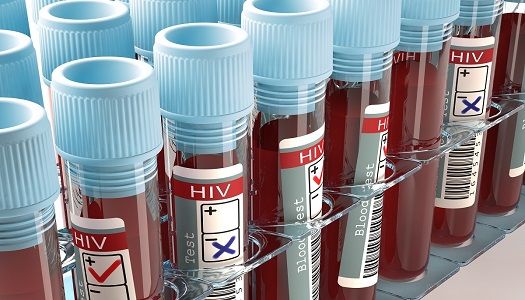First Human Trial for 10-1074 Antibody HIV Treatment
Researchers are describing the antibody 10-1074 as the most potent of its kind so far.

Researchers from Rockefeller University have tested a new biologic to treat infection with HIV—a treatment that they’re saying is the most potent of its kind so far.
When antiretroviral therapy (ART) came on the scene in the 1990s, it offered hope to HIV-positive patients. As a result of ART, the disease is no longer a death sentence. With right drug regimen, HIV no longer automatically progresses to AIDS. However, drugs must be taken every day and although the benefits of ART far outweigh the risks, potential serious side effects remain a concern.
In a promising development, research is continuing to back up the use of broadly neutralizing antibodies (bNAbs) as an alternative treatment route.
The experimental drug, called 10-1074, is a monoclonal antibody that targets the V3 glycan supersite on the HIV-1 envelope protein. While the research is in its early stages, results have been encouraging thus far.
“The antibody binds to a different part of the virus than the other antibody we’ve studied. In addition, it’s one of the most potent broadly neutralizing antibodies described to date,” Till Schoofs, an instructor in Clinical Investigation in the lab of Michel Nussenzweig, MD, PhD, said in a news release.
Using 19 people with HIV and 14 people without HIV, the team set out to learn two things: if the antibody is safe and if it causes antiviral activity in humans. The Rockefeller University team partnered with researchers from the University of Cologne in Germany to enroll participants.
The drug had a half-life of 24 days in participants without HIV and 12.8 days in those with HIV. Of the patients, 13 received that highest dose of 10-1074 (30 mg/kg)—11 of which showed an average 1.52 logâ‚â‚€ copies/ml viremia decline. The researchers noted that the 11 patients’ viruses showed some resistance to treatment, which emerged within the first few weeks after infusion, but the viruses still reacted to the bNAb.
The team learned something from people who weren’t infected with HIV as well. It turns out that 10-1074 may also be an effective preventive agent. Right now, the antiviral medication for pre-exposure prophylaxis (PrEP) is recommended for people at high risk for contracting HIV, such as men who have sex with men. However, just like ART, it must be taken every day and can come with severe side effects. So if further evidence supports 10-1074 as an alternative preventive, it may help diminish those compliance challenges.
“Based on our findings we think these types of antibodies could be a viable substitute for the drugs currently used in PrEP,” concluded first author, Marina Caskey, MD, assistant professor of Clinical Investigation. “But to clearly demonstrate that these antibodies have an advantage over the pill that’s currently used, we would need to test them in large numbers of people and show that they remain active for a prolonged period of time in the body.”
The researchers already have new clinical studies in the works. They’re combining 10-1074 with another antibody, 3BNC117, to see if two is better than one.
The study, “Antibody 10-1074 suppresses viremia in HIV-1-infected individuals,” was published in Nature Medicine. The news release was provided by Rockefeller University.
Related Coverage:
Elite Controller’s Antibodies Combined to Defeat HIV
Three-Drug Combo Prolongs HIV Treatment Effects
Physicians Turn to Twitter to Track HIV Transmission Behaviors